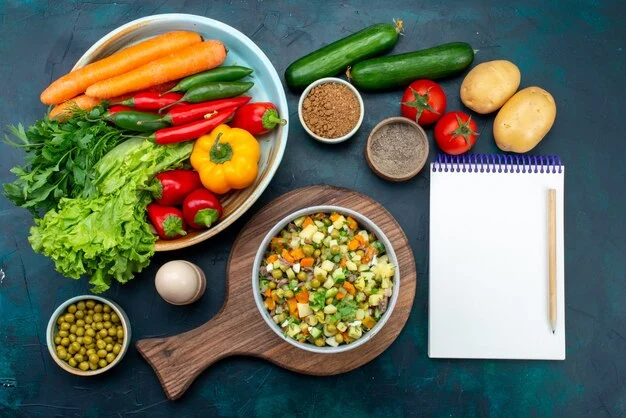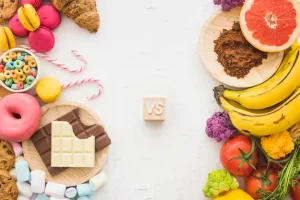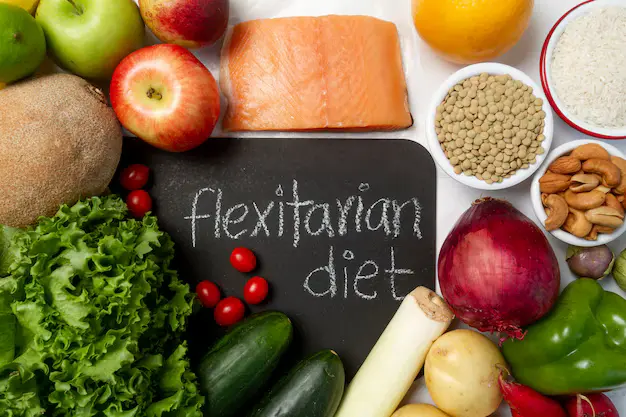
How to Choose the Best Organic Food for Your Diet
Organic food is produced without harmful chemicals, pesticides, or artificial additives. Hence, it becomes a much safer and better option for your body. Organic empowers you to minimize intake of all the harmful chemicals and substances implicated in allergies, cancer, and other health afflictions. In the long run, eating foods that are organic may lower the level of toxins in the body, making you healthier. Organic foods are a way to nourish your body from the earth through the avoidance of chemical pesticides and fertilizers. Buying organic can also help you digest better and contribute to less inflammation over time.
Top Benefits of Eating Organic Foods


- The fewer chemicals: Organic food has way fewer pesticides and chemicals that are regularly used in normal farming to protect the crops. When you select the organic food, the remaining is less exposed to these chemicals.
- More nutrients: Studies have indicated that organic food might have increased levels of antioxidants, vitamins or minerals than conventionally grown food. And these nutrients may help support your immune system, combat inflammation, and benefit overall health.
- Environmental Benefits of Organic Farming: More environmentally friendly Organic farming is sustainable and involves practices that impact the environment to a lesser extent. It reduces pollution, uses less water and promotes biodiversity through crop rotation and natural pest-control techniques.
- No GMOs: There are absolutely no genetically modified organisms (GMOs) present in organic food, which means you are eating food that is completely devoid of any genetic alteration. Such ingredients are best avoided by many for health concerns and environmental conditions.
How to Tell Real from Fake Organic Food
Above all else, when you’re out buying organic food, you need to know how to tell the difference between authentic organic and everything else. The simplest method is to check for the official “Certified Organic” sticker on the packaging. This label means that a product has been verified to have met specific standards that have been set by an organization certified to do so, such as USDA Organic. You could also look for logos from other reputable organic certifiers in your country. Beware of products labelled “natural” or “pesticide-free,” as those declarations are not equivalent to organic standards. The more the brand reveals about their farming methods, the more assurance you can feel in your purchase.
Which is Healthier: Organic or Conventional Food?
What is organic food?
Organic food is food that appears here without synthetic pesticides, chemical fertilizers, or genetically modified organisms (GMOs). Organic farmers maintain the health of the soil and crops by using natural processes (including crop rotation, composting, and biological pest control).
Benefits of Eating Organic
There are many health benefits to eating organic food. Organic food is roughly chemical-free and many times rich with vitamins and minerals. Thus, organic food is healthy for your immune function and general well-being. It can also minimize some diseases associated with such chemical exposure — like cancer or hormone disruptions. Another benefit of organic food is that it has a more natural, nutrient-rich environment to grow in, resulting in a fresher taste.
Organic vs. Non-Organic Food


- Fewer chemicals: Traditional farming uses chemical pesticides and fertilizers to protect crops that can leave residues on the food you eat. Organic foods are farmed with fewer or no chemicals, pesticides, which are harmful less and safer for general public.
- More vitamins: Organic foods, moreover, tend to have more supplements, like antioxidants that can help to protect the body from free radicals and bolster general wellness. A few things to think about suggest natural creating is richer in vitamins, especially vitamin C, and a few minerals.
- Taste and freshness: Organic food is typically fresher, and many say it tastes better. That’s because organic food is usually grown under conditions that are closer to nature, and it also does not necessarily require long storage times as industrialized crops do.
The Top Organic Foods for Your Diet
To optimise the benefits of an organic diet, ate the following foods on a daily basis: Apples, berries, bananas, and citrus fruit are common organic examples that may help you get more vitamins and antioxidants in your body.
- Vegetables: Leafy greens (spinach, kale, lettuce), tomatoes, carrots, and bell peppers are strong organic contenders that not only help with digestion but also provide beneficial nutrients and minerals as well. Quinoa, oats, brown rice, barley, all excellent sources of Fiber and nutrients. They provide a wealth of health benefits, including stable blood sugar levels and digestive support.
- Organic Foods to Buy: A List of Organic Foods Meat and Dairy Organic meat, dairy products, chicken, beef, and pork with no antibiotics and hormones.Meats & Dairy: Hormone and antibiotic-free grass-fed meat, chicken, pork & dairy
- Legumes and Nuts: Beans, lentils, and nuts (such as almonds or walnuts) give protein, healthy fats, and Fiber and can be a superb addition to your suppers.
Frequently Asked Questions (FAQs)
-
The meaning of organic food and why it matters
Organic food is food produced without synthetic chemicals, pesticides, or GMOs. It matters because it’s good for you and the planet, skipping chemicals and promoting responsible farming practices.
-
What separates organic food from conventional food?
Organic foods are foods that have been grown naturally. Without synthetic chemicals, pesticides, or GMOs. Traditional food, however, relies heavily on synthetic chemicals and GMOs to increase yield.
-
What is the advantage of eating organic food?
Organic food limits your exposure to noxious chemicals, which reduces exposure to harmful chemicals, probably gives you more nutrients, and helps the environment when they use sustainable farming practices.
-
Is organic food healthier than the non-organic counterpart?
So yes, organic food is healthier than conventional food, as you get fewer chemicals, more nutrients (in many sources), and fewer toxins.
-
How do I know a product is really organic?
You can search for a certified organic label on the packaging, like the USDA Organic label. That means the product has satisfied certain organic farming criteria.
-
Do organic foods contain no pesticides or chemicals?
First, they do have fewer pesticides than conventional foods, as you can get, so they are not completely free of pesticides and chemicals. Organic farmers can still use natural pesticides and other methods to manage pests but not synthetic chemicals.
-
Which organic foods shall we consume on a daily basis?
You should consume organic foods like apples, berries, spinach, and carrots daily. You can add grains, such as quinoa and oats, as well as organic meats and dairy products.
-
Does organic food taste better than non organic?
Organic food is said to taste fresher and better, as it is grown in more natural, nutrient-dense soil and doesn’t get the same level of long storage process as conventional food.
-
Why is organic food so expensive?”
As a result, organic food is pricier due to more labor-intensive farming practices, lower crop yields, and larger certification costs. But the long-term health and environmental benefits are well worth the price premium in many cases.




